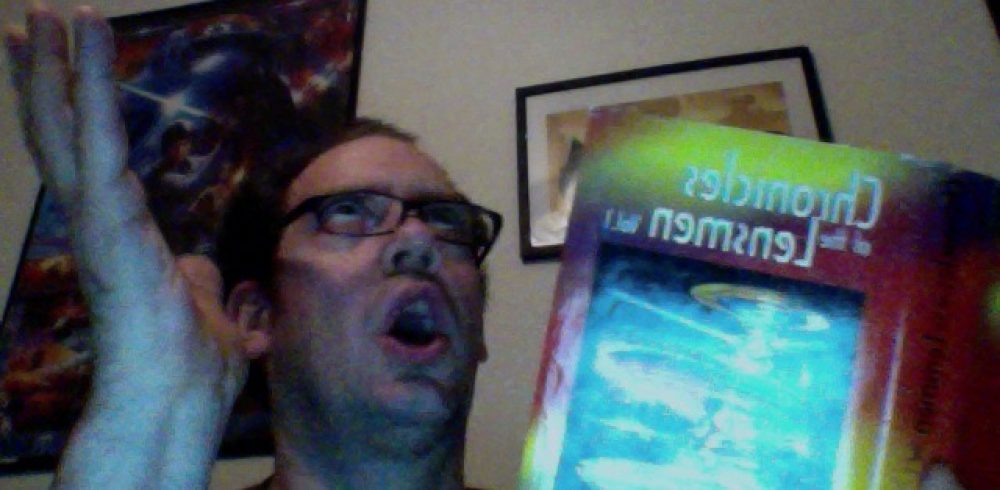After many failures I think I may have found an adequate study Bible. I had an uneasy feeling reading the other Bibles, their commentaries. What I was seeking was an actual presentation of what the Bible represents by people who assume, or believe, it is true. I was looking for the best argument. What I found in the other versions I tried eluded me for a time, but had an air of the familiar.
When I studied Objectivism I would use many sources but I found that many started from a premise of disbelief. They started from the premise that what they were discussing was wrong and then proceeded from there. The problem was they almost always misrepresented the arguments they would proceed to pick apart. So if the pro-Objectiivst books lacked any criticism, they at least presented the correct argument. And the non-Objectivist presentations while having a balanced criticism (sometimes) were not arguing against the actual positions of Objectivism, or, at best, a distorted statement of the positions.
While not exactly the same thing, the study Bibles I have used thus far have given me a similar feeling. And I realized why. Their starting premise is that the Bible is fantasy, there is no god, and there is no such thing as a miracle, or prophecy, etc. But what happens in the commentary because of this is the commentary is not for the purpose of understanding the text itself, but to explain away everything that is false. So any mention of the destruction of the Temple means that work is after 70 AD. This ignores the fact, for instance, that predicting the destruction of the Temple was not really a sign of great prophecy. It is on a par with predicting the collapse of the American dollar. It may not happen, but if it does, we don’t have to, later on, explain such a prediction away by moving the prediction date to post-event date.
And since Mark does mention this, and it is believed that Mark was written first in the synoptic Gospels, the other ones therefore were written somewhere in the 80 – 90’s AD. But this doesn’t really cover all the bases so they have to theorize a document they call Q that all the synoptic Gospels draw on in addition to Mark. And then there is the question of Matthew not being the writer of his Gospel because of this and that.
And then after a while you have to wonder, because the commentary has really nothing to do with the book you are reading, why are you doing it at all?
Now, so the boat does not rock too much, this is not to say that such matters are unworthy of consideration, not that they are not somewhat interesting. After all blind faith is not, for me, an attractive quality. But they do not belong in a “study Bible” because you are in fact not studying the Bible. Almost none of the commentary in the ones I previously sampled had any lengthy focus on the meaning of what I was reading.
Lest one think I am off my rocker, let me illustrate from a direct historical parallel. A teacher in a history of philosophy course I took said (and I never followed up to verify) that it is believed that Aristotle’s work is not believed to be something written by Aristotle himself, but is believed to be compiled notes from his lectures that his students wrote. Now, suppose I wanted to learn the thought of Aristotle, what he said, what his argument was. And I found numerous books of various titles “Commentary on Aristotle’s Works”. But all each book discussed was elaborations on its thesis that Aristotle was not the writer of Aristotle’s works. It would not help you with your understanding of Aristotle’s work.
And, as in the case of the Bible itself, it would be historically irrelevant as far the history of thought goes.
The Navarre seems to be be a real dedicated Bible that discusses the actual Bible itself. And while it is not the Douay-Rheims translation, it does have the Latin vulgate translation right beneath the English.


You might also like The Orthodox Study Bible.
I do plan on hitting the Orthodox sometime in the future. Thank you, that looks like what I’d go searching for.
Are you the same Darrell from Mr. Wright’s site? Welcome either way!
I am the Darrell from Mr. Wright’s. It sounds as if the Navarre Bible is quite excellent, though I haven’t read it myself. You will find that Roman Catholicism and Orthodox Christianity are quite similar with but a handful of differences, if that, early on but those differences become increasingly profound over time as they are extrapolated on.
Nice to have you back.
From what I read in this post on a blog devoted to Catholic Bible study: http://www.catholicbiblesblog.com/2010/06/review-navarre-bible-new-testament.html
it seems you found a very good and very Catholic reference. If I needed a study Bible in English, I would probably pick this one as well.
Thanks for the info and commentary.
Thanks,
I found a couple including one from 1860 or so called the Haydock Catholic commentary Bible. It usually runs for well over a hundred dollars. The Navarre also has a large, multi-volume series on the Old Testament as well.
The real impressive part is the sources it draws upon. There are eight pages listing the quoted sources within the commentary, from the Catechism to Epistulae fastales from St. Athanasius. And I swear literally anything and everything in between.